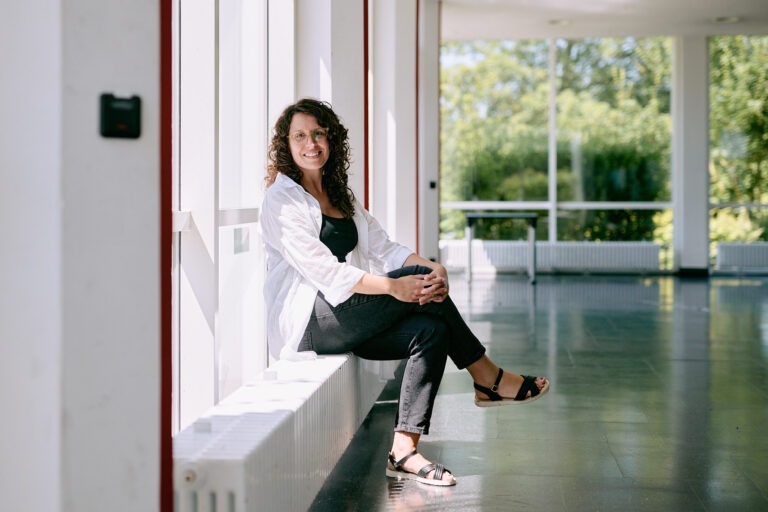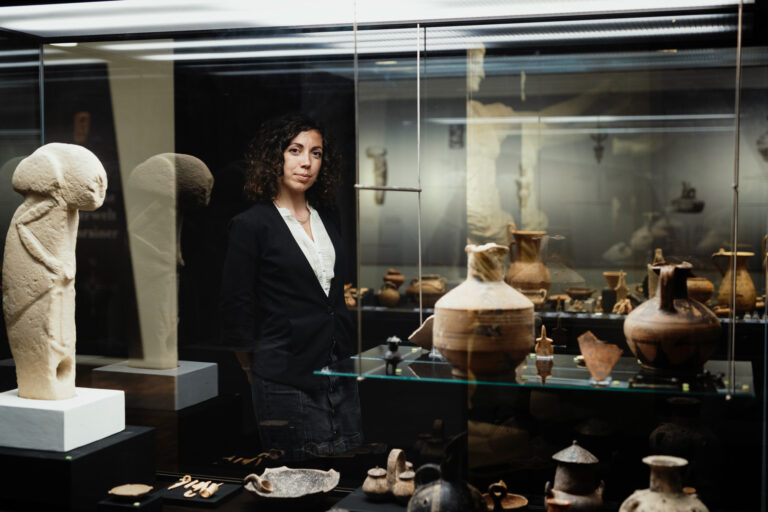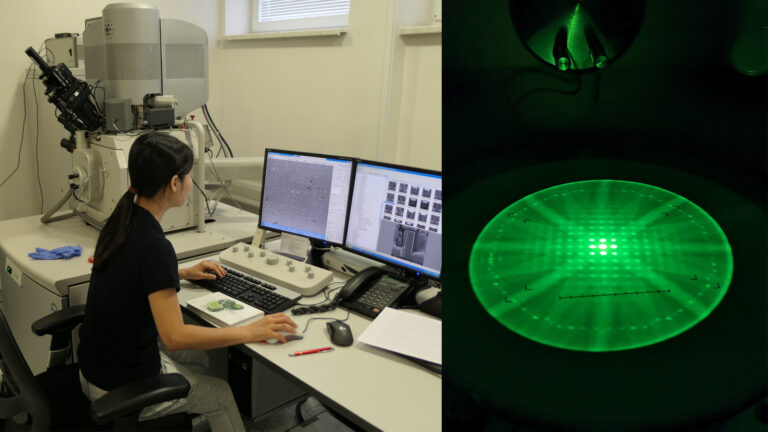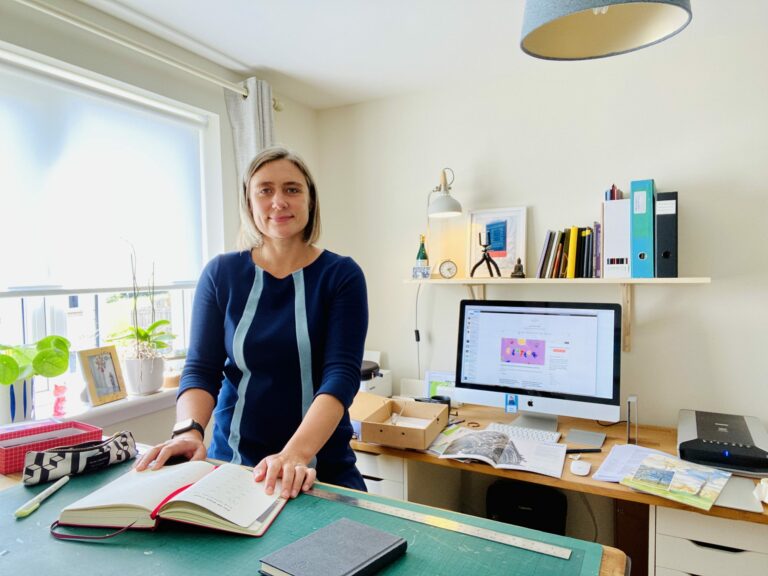
Screentime, Smartphones, and Big Data Analysis: An Interview With Psychologist Dr. Rui Sun
In the series “33 questions” we introduce, in no particular order, our WiRe Fellows who are currently working on a research project here at the University of Münster. Why 33? Well, if we think of the rush hour of life, it is kind of the age that lies in its middle. And we also like the number😉.
In today’s episode we are speaking with Dr. Rui Sun, social psychologist and researcher on human social behaviours.
Profile of Dr. Rui Sun
1. What motivated you to work in the field of social psychology?
Social psychology is the study of how individual or group behaviors are influenced by the presence and behavior of others. I have always been interested in observing, explaining, and predicting human social behaviours. This attracts me to the field of social psychology.
2. Describe your daily work in three words.
Big data analysis, smartphone research, coding.
3. Describe your research topic in three words.
Emotion, wellbeing, smartphone.
4. A good social psychologist needs…?
Good statistics skills, empathy for human suffering.
5. What was your biggest research disaster?
During my PhD, my research group received some data from Facebook. However, after working on the dataset for more than a year, Facebook forbid us from using the data for publishing. This was definitely the most frustrating experience during my research.
6. Which (historical) important scientist would you like to have dinner with? What would you ask?
Adam Grant (Professor at the Wharton School of the University of Pennsylvania). I’d like to ask him how to work efficiently.
7. If time and money were no object: Which research project would you like to do?
I would like to have access to people’s smartphone and social media data, and study how smartphone usage and social media behaviour predict real-life behaviours.
8. What is your favorite research discipline other than your own?
Agriculture.
9. What do you consider the greatest achievement in the history of science / your field?
(In social psychology) using big data to explain and predict social behaviour
10. Which experience in the world of science disappointed you most?
The grant application system doesn’t purely rely on ability, but also relies on luck.
11. What was the funniest moment you had in science?
Reading a paper in which the author proposed to his girlfriend in the acknowledgment.
12. How did you survive your PhD time?
I wouldn’t use the word “survive” to describe my PhD time. I enjoyed my research, so any effort was worth it. Besides, during my PhD, I made many great friends, travelled across Europe, and met my current husband. Therefore, rather than “survive”, I would use “enjoy”.

13. What direct or indirect relevance does your research have for society?
I study how smartphone and social media usage influences individuals’ psychological wellbeing. People, including very young kids, spend a lot of time on screens, and this has been shown to lead to all types of consequences. For example, Instagram promoted and targeted pages glorifying eating disorders to accounts of teenagers, causing increases in eating disorders among the youngsters.
Passive social media usage (such as scrolling in the newsfeed) is related to worse psychological wellbeing. My work aims to better understand how the content and context of social media and smartphone usage may explain why and how individuals differ in their wellbeing.
14. How did you imagine the life of a scientist/researcher when you were a high school student?
Doing experiment in the lab, standing all day (as a biologist).
15. Is it actually different? In what way?
Yes… my actual work involves a lot of coding, data analysis, and writing manuscripts. I spend nearly all my work hours sitting in front of the laptop.
16. What do you like most about the “lifestyle” of a scientist? And what least of it?
What I like most about the lifestyle is as a scientist is that I can do research on topics that I like, and I can also arrange my time freely. The least favourite aspect is that scientists in our field have to spend a lot of time on grant applications, and only a very small proportion of people can get the funding. Without funding, it’s difficult to do research.
17. Do you think your career would have evolved differently if you were a man?
No.
18. If you were the research minister of Germany, what would you do to improve the situation of women in science?
Increase the percentage of women hired for PhD and faculty positions.
19. If you had a daughter, what would you advise her not to do?
I would advise her not to lose her independence.
20. How would you explain your research area and topic to a child?
Social psychology studies what people think and do, either by themselves or in a group. It also studies how other people’s presence influences a person’s thoughts and behaviours. For myself, I study whether using social media and smartphone influences people’s emotions and happiness in life.
21. What is the biggest challenge for you when it comes to balancing family and career?
There is not enough time for work after my kid was born.
22. How do you master this / these challenge(s)?
I still have not yet “mastered” it, because he is still very small. But working more efficiently helps to some extent.
23. How often do you as a friend / partner / mother / daughter feel guilty when you have to meet a deadline – again?
Never. I don’t feel guilty if I don’t make a mistake. My career is as important as my family.
24. How did you imagine your future as a child? What profession did you want to pursue?
I have always imagined myself being a medical doctor (surgeon).
25. How do you keep your head clear when you are stressed?
Exercising.
26. What is your favorite German word?
Liebe.
27. What or who inspired you to become a social psychologist?
I was lucky enough to take some psychology classes in high school, that was the enlightenment for me. Later I had the most interesting social psychology course when I was a visiting student at the Chinese University of Hong Kong. These two teachers led me into the field of psychology and further being a social psychologist.
28. Which of your traits bothers you the most in your daily work?
I’m always interested in starting new projects rather than finishing existing ones.
29. And which of your traits help(s) you the most in your daily work?
Having great interests in all aspects of human behaviours.
30. What worries you most about the world?
Climate change and species extinction.
31. Your favourite TV series?
Friends.
32. If you could travel in time: in which epoch and at which discovery or event would you have liked to have been there?
The discovery of DNA double helix structure.
33. What are the advantages and disadvantages of doing a Research@home-WiRe-fellowship?
Advantages: very helpful in balancing work and life, especially during the Covid pandemic.
Disadvantages: less face to face interactions with other WiRe fellows.







